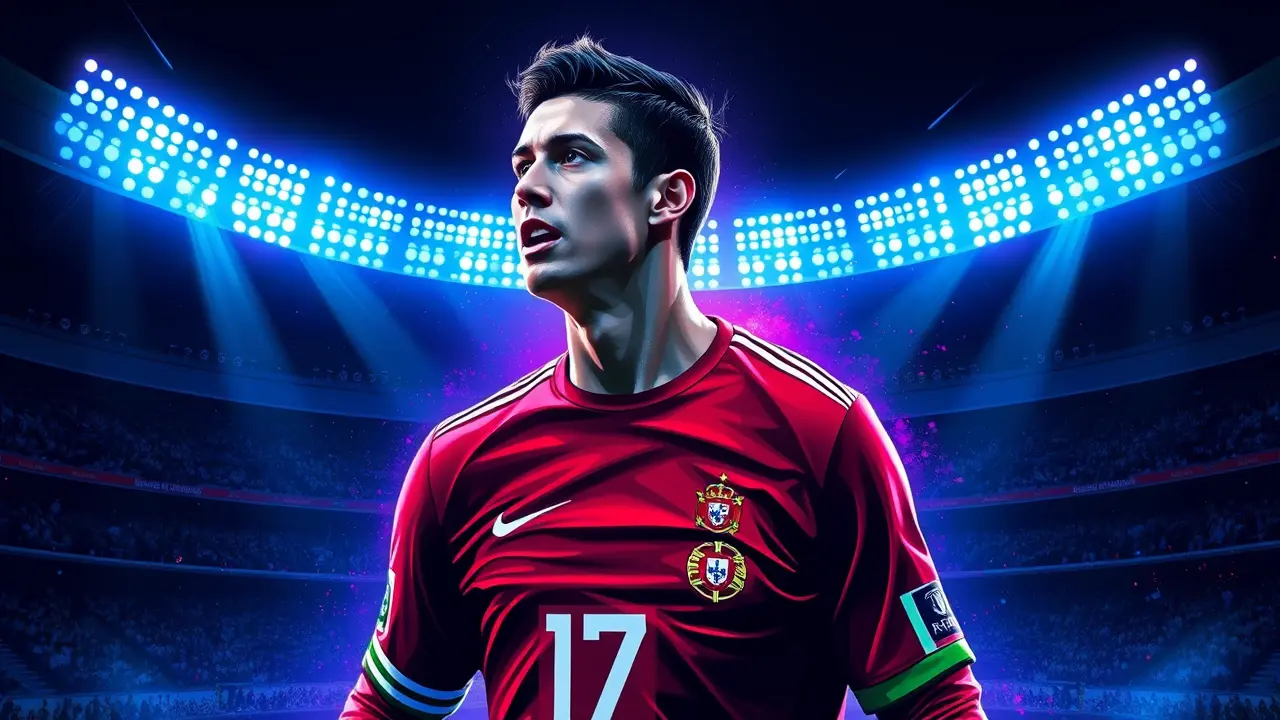Jorge Jesus: Ronaldo is a symbol of Portugal.
In a recent and characteristically passionate declaration that cuts to the very heart of modern football's iconography, Jorge Jesus, the esteemed manager of Al-Nassr, has anointed Cristiano Ronaldo as nothing less than a living, breathing 'symbol of Portugal,' a statement that, while seemingly obvious to the casual observer, carries profound weight when uttered by a football intellectual of Jesus's caliber. The veteran coach, whose own career has been a masterclass in tactical evolution and man-management, didn't just offer a platitude; he provided a vivid, almost cinematic glimpse into the phenomenon that is CR7, revealing that 'nobody in the world has the slightest idea what he is really like as a person.I didn't know either, but now I do. It's incredible.' This insider's perspective is a rare admission in the often-opaque world of elite football, suggesting a depth to Ronaldo beyond the meticulously crafted public persona, a complexity that Jesus, with his decades of experience, finds genuinely remarkable. The imagery Jesus paints is one of quasi-religious devotion, describing how 'wherever he is in the country, hundreds of people gather at the doors of hotels just to watch him walk by,' a scene that transcends mere fandom and enters the realm of cultural event, echoing the kind of mass adulation once reserved for royalty or rock stars.To truly grasp the magnitude of this, one must contextualize Ronaldo's journey from a scrawny, tricksky winger on Madeira to this national emblem; it's a narrative of relentless self-improvement that mirrors the very ethos of the modern game, a story of transforming raw, explosive talent into a global brand through an almost pathological work ethic, a journey that can be statistically charted through his Ballon d'Or wins, his Champions League triumphs with Manchester United and Real Madrid, and his record-shattering goal tallies that have consistently redefined what is possible for a forward. Yet, Jesus's comments invite a deeper analytical dive: what does it mean to be a 'symbol' of a nation in 2024? For Portugal, a country with a rich but historically underachieving footballing pedigree before the 'Golden Generation,' Ronaldo is not just their greatest-ever player; he is the personification of their ascent to the top table of world football, the catalyst for their historic Euro 2016 and Nations League 2019 triumphs.His presence alone alters the gravitational pull of any team he joins, as seen with Al-Nassr, instantly elevating the Saudi Pro League's global profile and forcing a recalibration of its competitive and financial landscape, a move that analysts like myself see as a precursor to a broader shift in football's geopolitical power structures, challenging the traditional dominance of Europe's top five leagues. Drawing a comparison to legends is inevitable; where Pelé was 'O Rei' (The King) for Brazil and Diego Maradona was a deity in Naples, Ronaldo has achieved a similar symbolic status for Portugal, but in a hyper-globalized, digital age, his influence is amplified exponentially through social media, making him a 24/7 accessible icon.However, this symbolic status is a double-edged sword, carrying an immense burden; every missed penalty, every trophy-less season, is felt not just as a sporting failure but as a national moment of introspection, a weight that few athletes in history have been forced to carry for such a prolonged period. The strategic implications for Al-Nassr and the Saudi project are immense, with Jesus now tasked with harnessing this symbolic power not just for marketing clicks but for tangible on-pitch success, building a cohesive tactical unit around a superstar in the twilight of his career, a challenge that requires a delicate balance of ego management and tactical pragmatism.As we look toward the next chapter, including a potential final bow at the 2026 World Cup, Jorge Jesus's poignant testimony solidifies a truth we've long sensed: Cristiano Ronaldo is more than a footballer. He is a force of nature, a cultural artifact, and as his coach so powerfully attested, the very symbol of his nation, a status earned through a career of unparalleled achievement and relentless dedication that will be studied and debated for generations to come.
It’s quiet here...Start the conversation by leaving the first comment.
© 2025 Outpoll Service LTD. All rights reserved.
